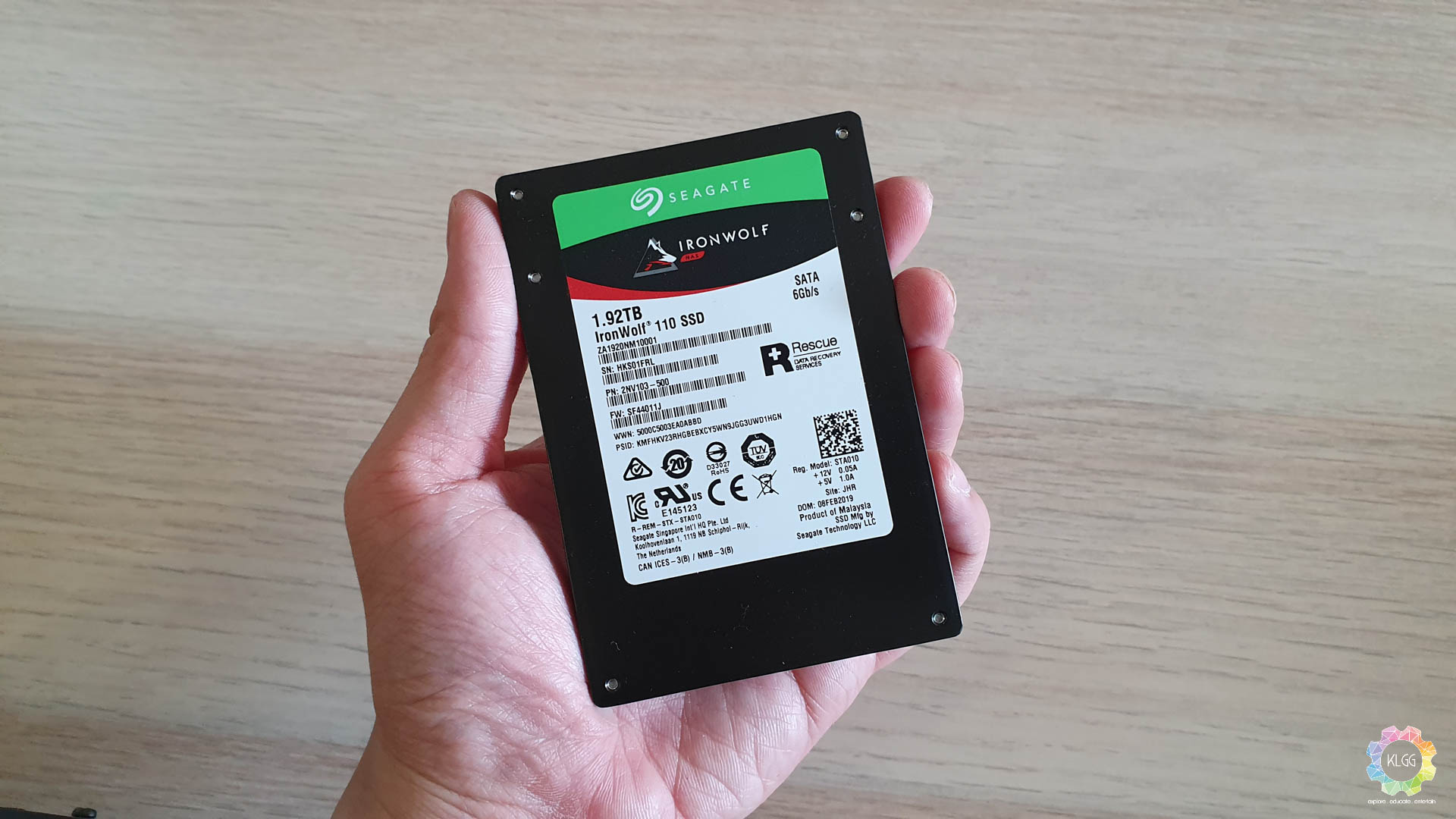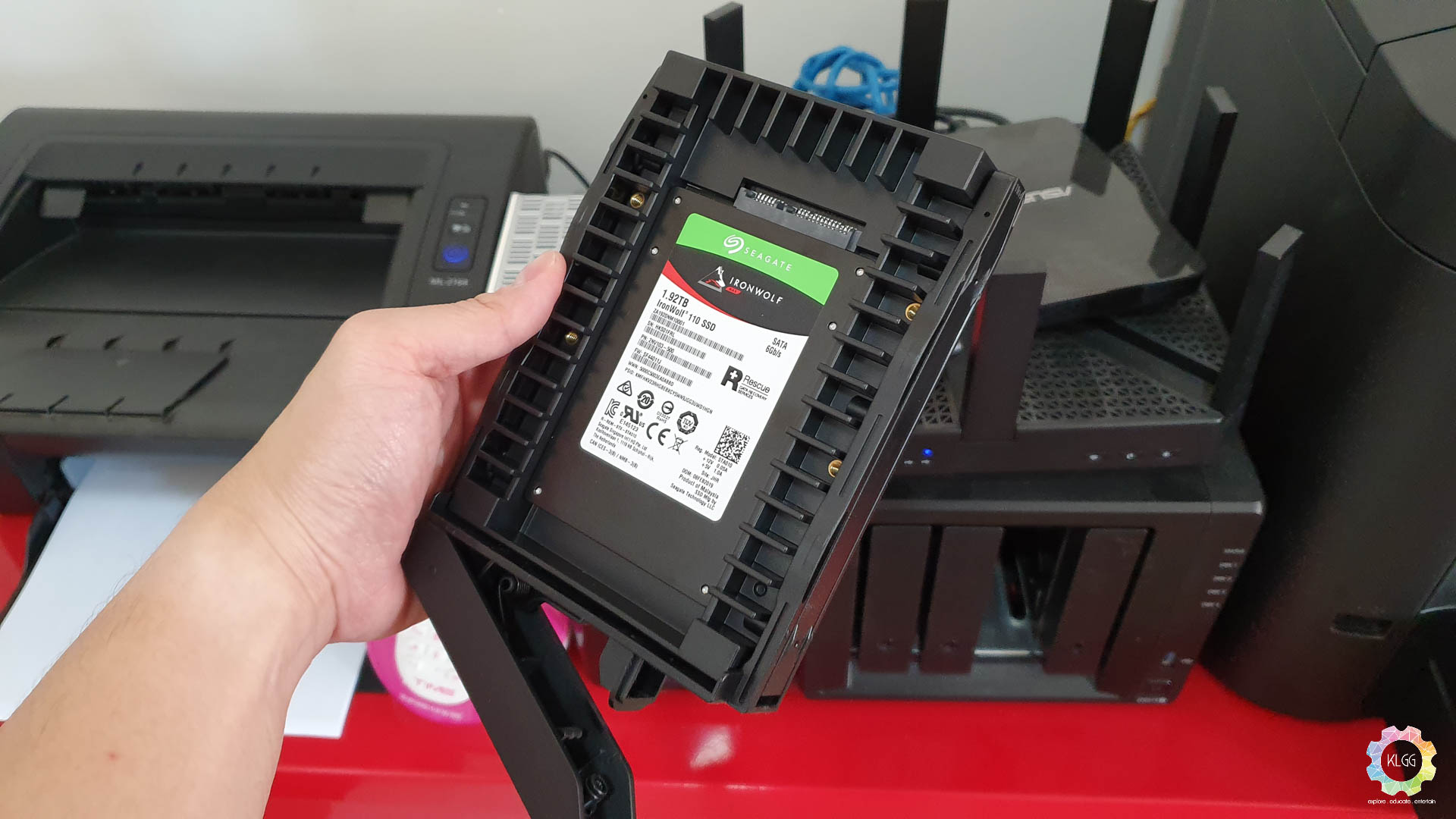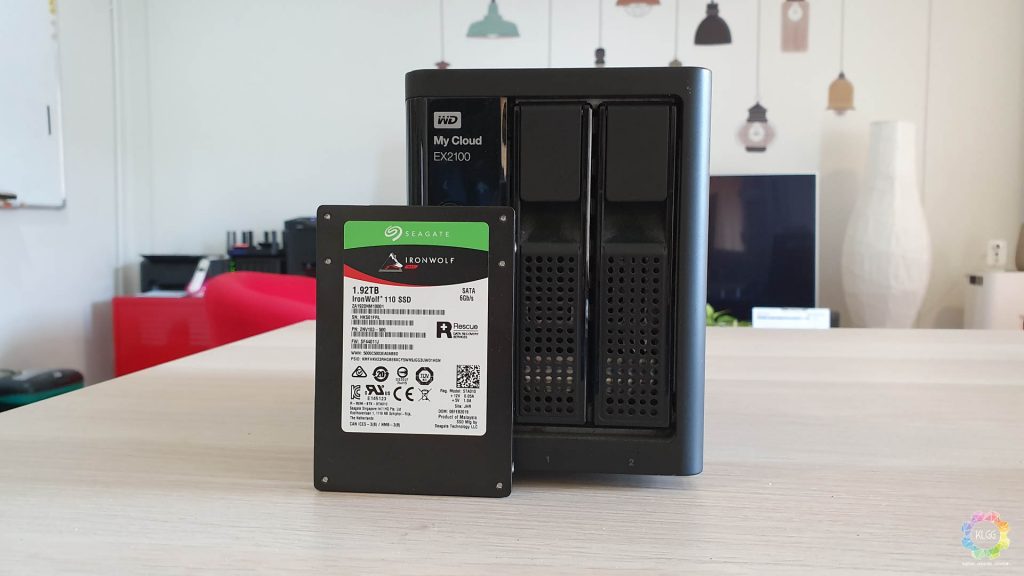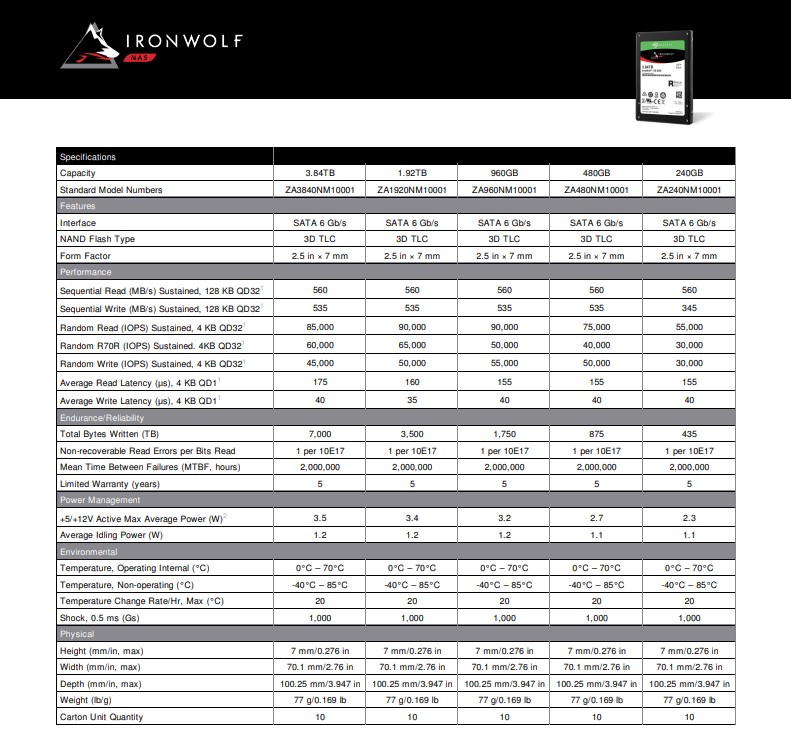Solid state drives have become a necessity for our computing devices for a faster workflow and that can be said the same for NAS enclosures.
Seagate, famous for its IronWolf NAS drives, has expanded its NAS storage family with the new IronWolf 110 SSD that’s made to deliver great performance and endurance for NAS drives.
The IronWolf 110 is the world’s first SSD for NAS, which is rather true as none of its competitors has yet to announce a SSD specifically made for NAS enclousres.

The IronWolf 110 SSD comes in an anti-static bag when we receive it, hence there’s no packaging for us to admire and take pictures. Unlike most of the 2.5-inch SSD that comes with a plastic case, the IronWolf 110 SSD shows its premium with its aluminum chassis, which also adds on a little heft than usual.

We tried to order this 3.5-inch to 2.5-inch SATA hard drive caddy from ORICO, the controller on it unfortunately isn’t able to identify the IronWolf 110 SSD, so make sure you avoid this and look for alternatives.
With a SATA 6 Gb/s interface, the IronWolf 110 SSD uses a 3D TLC NAND and a Seagate based controller based on SandForce that delivers a sustained speed of 560 MB/s sequential read and 535 MB/s sequential write speeds.
IronWolf 110 SSD Benchmarks
Since we only have a unit of the SSD for our review, we aren’t able to setup a RAID with our NAS to test out the maximum combined transfer speed, hence we fitted the drive on our test bench and ran some tests.
Test Bench Specifications
- CPU: Intel Core i3-8100
- Cooler: CoolerMaster Nepton 240M
- Motherboard: SuperO C7Z370-CG-IW
- RAM: Patriot Viper RGB Gaming 8GBx2 3200MHz
- SSD: Apacer AS340 240GB (Operating System)
- HDD: Seagate Firecuda 2TB
- GPU: ZOTAC GAMING NVIDIA GeForce GTX1660 6GB GDDR5
- Chassis: Cooler Master Test Bench V1
- Power Supply: CoolerMaster G750M
CrystalDiskMark
AS SSD
A benchmark that tests the SSD’s true performance without using the cache, this benchmark perform transfers a 1GB file with randomly chosen 4K blocks, hence this will show slightly lower speeds than other benchmarks
Windows File Transfer
We are impressed by its consistent write speed though its maximum speed is capped by our system’s SSD.
Verdict
IronWolf 110 SSD – Pricing and Availability
The IronWolf 110 SSD is available in storage capacities of 240GB, 480GB, 960GB, 1.92TB and 3.84TB, pricing and availability has yet to be announced in the Malaysian market, however if you were to reference from Amazon, we’d consider them to be very reasonable whether you are buying one for caching purposes or to use it as a full fledge storage for your applications:
- 240GB – US$93 (RM384)
- 480GB – US$148 (RM611)
- 960GB – US$276 (RM1140)
- 1.92TB – US$490 (RM2025)
- 3.82TB – US$980 (RM4050)


